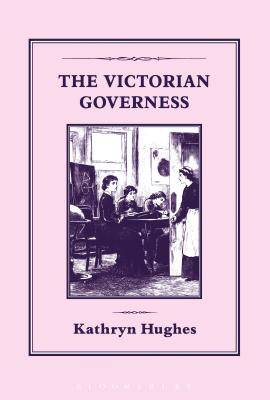
Bedankt voor het vertrouwen het afgelopen jaar! Om jou te bedanken bieden we GRATIS verzending (in België) aan op alles gedurende de hele maand januari.
- Afhalen na 1 uur in een winkel met voorraad
- In januari gratis thuislevering in België
- Ruim aanbod met 7 miljoen producten
Bedankt voor het vertrouwen het afgelopen jaar! Om jou te bedanken bieden we GRATIS verzending (in België) aan op alles gedurende de hele maand januari.
- Afhalen na 1 uur in een winkel met voorraad
- In januari gratis thuislevering in België
- Ruim aanbod met 7 miljoen producten
Zoeken
Omschrijving
The figure of the governess is very familiar from nineteenth-century literature. Much less is known about the governess in reality. This book is the first rounded exploration of what the life of the home schoolroom was actually like. Drawing on original diaries and a variety of previously undiscovered sources, Kathryn Hughes describes why the period 1840-80 was the classic age of governesses. She examines their numbers, recruitment, teaching methods, social position and prospects.
The governess provides a key to the central Victorian concept of the lady. Her education consisted of a series of accomplishments designed to attract a husband able to keep her in the style to which she had become accustomed from birth. Becoming a governess was the only acceptable way of earning money open to a lady whose family could not support her in leisure.
Being paid to educate another woman's children set in play a series of social and emotional tensions. The governess was a surrogate mother, who was herself childless, a young woman whose marriage prospects were restricted, and a family member who was sometimes mistaken for a servant.
The governess provides a key to the central Victorian concept of the lady. Her education consisted of a series of accomplishments designed to attract a husband able to keep her in the style to which she had become accustomed from birth. Becoming a governess was the only acceptable way of earning money open to a lady whose family could not support her in leisure.
Being paid to educate another woman's children set in play a series of social and emotional tensions. The governess was a surrogate mother, who was herself childless, a young woman whose marriage prospects were restricted, and a family member who was sometimes mistaken for a servant.
Specificaties
Betrokkenen
- Auteur(s):
- Uitgeverij:
Inhoud
- Aantal bladzijden:
- 278
- Taal:
- Engels
Eigenschappen
- Productcode (EAN):
- 9781852853259
- Verschijningsdatum:
- 5/02/2003
- Uitvoering:
- Paperback
- Formaat:
- Trade paperback (VS)
- Afmetingen:
- 165 mm x 224 mm
- Gewicht:
- 412 g

Alleen bij Standaard Boekhandel
+ 102 punten op je klantenkaart van Standaard Boekhandel
Beoordelingen
We publiceren alleen reviews die voldoen aan de voorwaarden voor reviews. Bekijk onze voorwaarden voor reviews.









